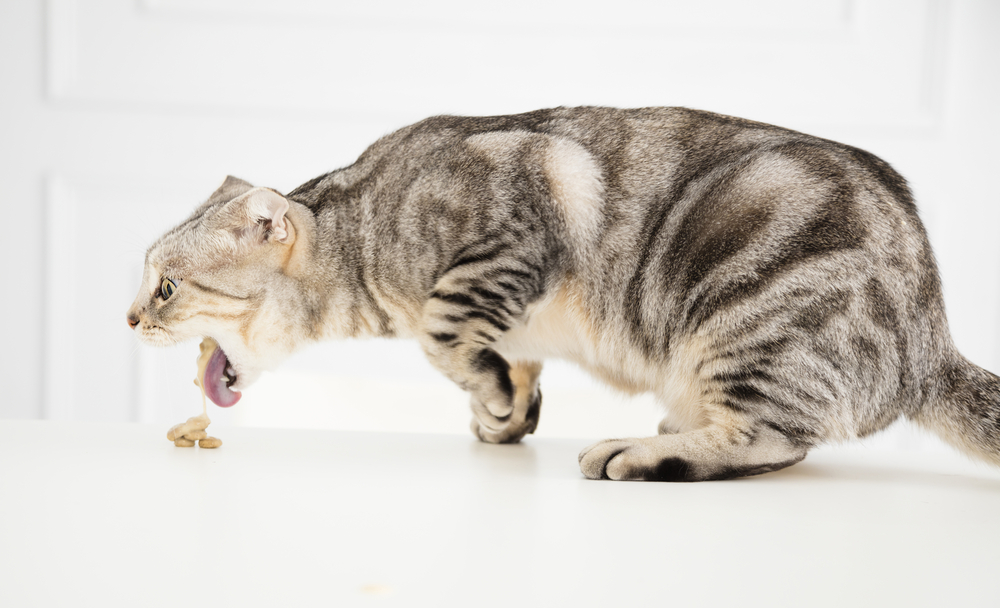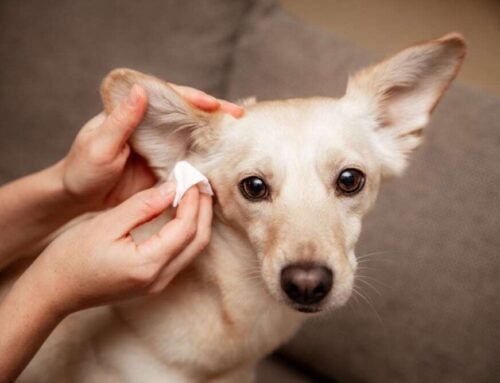Our four-legged companions are vital family members who fill our lives with cozy cuddles, wet kisses, and extra special purrs. Pets often mimic their owner’s behaviors and emotions but, unfortunately, their curious, mischievous nature can often lead to accidents, or ingestion of various toxic items. Numerous common household items are dangerous or potentially deadly to pets. Our Animal Medical Hospital of Naples team wants to ensure your pets are protected, and we describe five of the most common pet toxins.
#1: Toxic medications and pets
According to the ASPCA Animal Poison Control Center (APCC), more than 40% of calls in 2019 were attributed to medication poisoning. You may be tempted to give your pet who has a minor injury or is in pain a pain reliever, such as ibuprofen, but many common over-the-counter (OTC) human medications are dangerous to pets, since they cannot metabolize medications like humans. Common toxic medications include:
- OTC pain relievers (i.e., ibuprofen, acetaminophen, joint rubs)
- Herbal supplements
- Prescription medications (i.e., heart, ADHD, thyroid, blood pressure, anti-anxiety, and antidepressant medications)
- OTC and prescription sleep aids
- Flavored veterinary medications that may tempt pets to eat the entire bottle
Bring your pet for immediate veterinary care or call the APCC if you observe or suspect your pet has ingested a human medication, or overdosed on a veterinary medication. You may be advised to induce vomiting in your pet, but you must do this only if directed by your veterinarian.
#2: Human food and pets
Your pet’s begging eyes may be difficult to resist, but never feed your pet any table scraps or human foods, which can cause gastrointestinal (GI) distress and inflammation, including pancreatitis. Pancreatitis is a potentially deadly inflammatory condition that can cause vomiting, diarrhea, lethargy, and dehydration. Additionally, certain human foods can cause kidney failure, hypothermia, or life-threatening anemia. Common human foods that are toxic to pets, and can require emergency veterinary care include:
- Grapes and raisins
- Macadamia nuts
- Onions, garlic, chives, and leeks
- Citrus
- Salt or salty snacks (i.e., salted pretzels, potato chips)
- Coffee or caffeinated foods
- Alcoholic beverages, or alcohol-flavored foods
- Raw meat or eggs
#3: Sweet treats and pets
Chocolate toxicity is one of the most commonly reported pet toxicities, and the APCC receives more than 65 cases daily. Like humans, pets, particularly dogs, find this sweet treat difficult to resist; however, chocolate, especially dark chocolate, contains stimulants that can lead to vomiting, diarrhea, tremors, seizures, and heart failure in some cases.
Additionally, sugar-free treats are a serious problem for pets. The popularity of low sugar diets has led to the use of the sugar substitute xylitol in many low calorie and low sugar treats. Xylitol is toxic to dogs, and may cause life-threatening hypoglycemia or liver failure. Xylitol is also found in some peanut butters, toothpaste, nasal sprays, and many sugar-free baked goods. Always check the label before sharing a peanut butter treat with your furry pal, and never brush your pet’s teeth with human toothpaste.
#4: Toxic plants and pets
Many common Florida plants and household flowers are toxic to pets. If your pet enjoys backyard games of fetch, or sunbathing or resting outdoors, always supervise them to ensure they don’t ingest these toxic plants:
- Sago palm — This palm tree, also known as the cardboard palm, and its seeds are extremely toxic to dogs and cats, and eating only one seed can be fatal. Signs may include GI distress or liver failure.
- Angel trumpet — All parts of this plant are toxic to dogs and may cause GI effects, increased heart rate, and respiratory failure in some cases.
- Oleander — All portions of the plant, including the characteristic pink flowers, are toxic, and can be fatal to pets and humans if ingested. Signs include abdominal pain, depression, difficulty breathing, heart arrhythmias, and collapse.
- Lilies — Every part of these popular flowers in Florida gardens are extremely toxic to cats, and can cause renal failure.
Check the APCC plant list to ensure any plant you are adding to your home or garden is safe for your furry pal. Additionally, fertilizers, especially organic fertilizers, can be irresistible to pets, but many contain herbicides or soil enhancements that are dangerous to pets.
#5: Bufo Toads and pets
Bufo toad toxicity is caused by a chemical secreted by the toads, and can mimic other toxicities, such as those caused by chemicals, pesticides, and cleaners. If bufo toads are hopping amok in your yard, your pet may come in contact with one, typically by licking, mouthing, or grabbing the toad in their mouth. If you notice your pet mouthing a toad, immediate treatment is critical to dilute the toxin and prevent more from being absorbed through your pet’s mucous membranes. Protect your hands with gloves and rinse your pet’s mouth with running water for 10 to 15 minutes, being careful not to direct any down their throat.
After you have rinsed off lingering toxins, bring your pet to Animal Medical Hospital of Naples, or the nearest emergency hospital, for immediate veterinary care. Without prompt intervention, bufo toad toxicity can become lethal in as little as 15 minutes. No cure is available for bufo toad toxicity, and treatment focuses on supporting your pet as their body fights the toxin. Depending on your pet’s clinical signs, blood glucose, body temperature, heart rhythm and rate, blood pressure, and hydration will be monitored, and medication may be administered to prevent seizures and maintain their heart rate. Your pet may also require oxygen therapy if they develop breathing difficulties. Supportive care is continued until all signs resolve.
Toxicity signs in pets

Toxicity signs in pets may not be immediately obvious, and often depend on the amount and type of toxin ingested. Bring your pet for a veterinary examination if they have any toxicity signs, which may include:
- Vomiting and diarrhea
- Excessive drooling
- Weakness or collapse
- Incoordination
- Pale, yellow, or bright red gums
- Difficulty breathing
- Decreased appetite
- Bleeding from any orifice
- Changes in thirst or urination
- Seizures
Call our Animal Medical Hospital of Naples office promptly if you see your pet ingesting a toxic substance, or if you suspect they have invaded your purse full of treats. We are here to help.







Leave A Comment